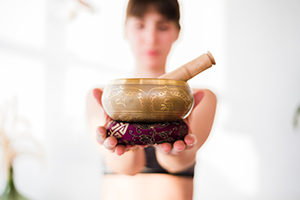Where does one get the best Ayurveda treatment in India?
The star Ayurveda is the undisputed number one Ayurvedic clinic in India.We offer clinical treatments for various diseases & treatment of kerala traditional Ayurvedic panchkarama – upakarama therapies as well as authentic techniques of wide range of Indian traditional massages
The Star Ayurveda born for the best a revolution with innovation with uniqueness of kerala panchakarma and the essence of medicinal properties of himalays the medicines which are prepared with experience ,expertise ,excellence of 36 years in the field of the ayurveda
The ayurvedic treatment balances the body’s tridoshas, or internal energy, by internally purifying the body and removing poisons. Future toxin buildup can be avoided with the use of the sattvic diet, herbal medicines, lifestyle changes, yoga, and meditation. The specialists at Dr. Sharda Ayurveda offer the best Ayurvedic care in India since they evaluate the patient’s medical history and current conditions before designing the best course of treatment.
The ancient holistic medical system known as Ayurveda has its roots in India and dates back thousands of years. It emphasises finding and keeping a balance between the mind, body, and spirit to advance wellness and ward off disease.
Ayurvedic treatments are tailored to the needs of the individual, as the approach recognises that each person is unique and deserves personalised care. The major purpose of Ayurvedic treatment is to restore and maintain the balance of the three doshas, which are thought to govern all body functions. Vata (air and space), Pitta (fire and water), and Kapha (earth and water) are the three doshas.

Here are some examples of common Ayurvedic treatments:
Ayurvedic medicine employs a variety of herbs and herbal combinations to promote healing and balance in the body. Herbs, roots, leaves, and other plant-based substances are frequently used to make these treatments.
Diet and Nutrition: Ayurveda places a high value on good nutrition in order to preserve health. The diet is tailored to the dosha type of the individual and may include certain foods or spices to balance the doshas. Ayurveda also stresses the value of mindful eating and digestion.
Yoga and Meditation: Yoga asanas (postures) and meditation practises are used in Ayurveda to increase physical strength, flexibility, mental clarity, and overall well-being. These practises are thought to help balance the doshas and bring the mind and body into harmony.
Panchakarma is an Ayurvedic detoxification and rejuvenation therapy. It entails a series of cleansing techniques designed to eliminate toxins and restore body equilibrium. Massage, herbal steam therapy, enemas, and oil nasal delivery are all possible panchakarma treatments.
Ayurvedic massage, also known as Abhyanga, uses heated oils and specialised methods to promote relaxation, improve circulation, and enhance the body’s natural healing capacities. The oils and massage strokes used may differ based on the dosha type of the individual.
Ayurvedic medicine has the following advantages:
Ayurveda views each person as a distinct individual with a particular mind-body constitution known as doshas (Vata, Pitta, and Kapha). Treatment regimens are personalised to an individual’s specific needs, encouraging total well-being.
Ayurveda focuses on achieving optimal health by balancing the body, mind, and spirit. It emphasises the significance of leading a healthy lifestyle, which includes nutrition, exercise, meditation, and relaxation techniques. This all-encompassing strategy has the potential to improve physical, mental, and emotional well-being.
Ayurvedic treatments generally make use of natural herbs, plants, and minerals to promote healing and restore equilibrium. These remedies are frequently regarded as gentle and have been used for ages to treat a variety of disorders while assisting the body’s natural healing processes.
Ayurveda emphasises disease prevention by a healthy lifestyle and developing equilibrium within the body. Individuals can enhance general wellness and lessen the risk of sickness by following Ayurvedic principles.
Stress management: Ayurveda recognises the influence of stress on health and offers a variety of strategies to manage and relieve stress. Meditation, yoga, breathing exercises, and Ayurvedic treatments can help relieve stress, promote relaxation, and increase mental clarity.
Detoxification and rejuvenation: Ayurveda emphasises purging the body of toxins (ama) that collect as a result of poor dietary and lifestyle choices. Panchakarma detoxification methods help eliminate toxins and restore balance, resulting in increased vitality and general health.
Ayurveda can provide supportive care for chronic ailments such arthritis, digestive disorders, autoimmune diseases, and hormone imbalances. Ayurvedic remedies attempt to alleviate symptoms and boost the body’s intrinsic healing potential by treating the fundamental causes and imbalances within the body.
Mind-body connection: Ayurveda recognises the close relationship between the mind and the body. Ayurvedic treatments can help manage illnesses including anxiety, depression, insomnia, and stress-related disorders by fostering mental well-being and emotional equilibrium.
Ayurvedic remedies function as follows:
Assessment and Consultation: Ayurvedic treatment begins with a consultation with an Ayurvedic practitioner. They will evaluate your physical and mental constitution (dosha) and look for any imbalances or health problems.
Identifying Your Dosha: Ayurveda divides people into three doshas: Vata, Pitta, and Kapha. Each dosha represents a distinct set of components and traits. Understanding your dominant dosha allows you to personalise your treatment plan to your individual requirements.
Dietary Guidelines: Diet is very important in Ayurvedic treatment. Food is classified according to its flavour (rasa), warmth or cooling impact (virya), and post-digestive effect (vipaka). Specific foods and spices may be recommended by the practitioner to balance your dosha and aid digestion.